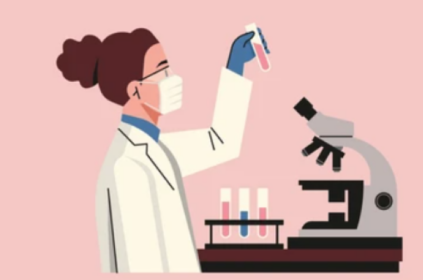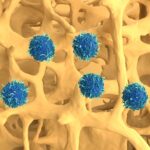A new educational collaboration between EO Care, a leader in clinically guided cannabis health and wellness solutions, and Cancer Support Community (CSC), a global nonprofit dedicated to supporting individuals with cancer, aims to address a significant need in cancer care: evidence-based guidance on using cannabis to manage symptoms.
This exciting collaboration brings together EO Care’s expertise in clinically guided, evidence-based cannabis care and CSC’s extensive network of patient support services. Through this initiative, visitors on CSC’s website can access educational materials from EO Care on cannabis benefits and risks, optimizing or reducing cannabis use, and developing an actionable care plan. CSC’s Cancer Support Helpline team is training on cannabis basics and resources and can even direct callers to EO Care for additional clinical resources.
Cancer Support Community chose to collaborate with EO Care thanks to EO Care’s unique combination of clinical expertise, education and ability to help people, and safe product. Sally Werner, RN, BSN, MHSA, the CEO of CSC, shares:
“Our new initiative with EO Care is intended to make sure people who reach out to us are referred to evidence-based information on using cannabis for cancer symptom relief. We are pleased to bring this new, much-needed resource to our community.”
Spearheading this initiative are Brent Bannerman, EO Care’s Head of Educational collaborations, and Dr. Brooke Worster, Director of the Division of Supportive Oncology at Jefferson Health and EO Care’s Chief Medical Officer (CMO). Their combined experience in healthcare technology, oncology, and cannabis care provides a strong foundation to grow this effort.
Recently, Dr. Worster and Bannerman sat down with What Next to discuss the growing need for and interest in cannabis care, overcoming stigmas and obstacles in cannabis adoption, and how the EO Care – Cancer Support Community educational collaboration contributes to greater equity in care.
Addressing Growing Interest in Cannabis Care
Recent studies highlight that an estimated 40.5% of people will develop cancer in their lifetime, and up to 40% of individuals with cancer use medical cannabis during either treatment or survivorship. Medical cannabis has been shown, both anecdotally and in studies, to reduce anxiety; to assist with sleep disturbances; and to significantly lower both nausea and chronic pain, both of which can result from cancer treatment. This underscores the pressing need for more reliable information and clinical guidance on cannabis in cancer care. However, says Bannerman:
“Education is lacking on both the patient and physician side. Physicians weren’t taught about cannabis care in medical school. One thing we hear from oncologists and clinicians is that they’d love to have a solution they can point to and know it’s safe and effective. With patients, the gap is really the ‘do it yourself’ aspect of cannabis care that currently exists. Patients don’t know where to go and end up taking advice from friends, family, or budtenders, none of whom are clinically able to provide more helpful guidance. What we hear a lot from our partners is that there’s a volume of questions in their membership that they don’t know how to answer, and that’s the gap we want to fill.”
Dr. Worster agrees. In her own clinical practice, as well as her work with EO Care, she’s found that understanding how to apply cannabis in cancer care isn’t well-understood:
“The biggest question I get is, ‘Tell me what to use.’ Every person is an individual. Guidance can’t be, ‘Go to the dispensary, get whatever product there is, and try two drops under the tongue.’ Unfortunately, that’s how some guidance is. At EO Care, we want to empower clinicians, caregivers, and patients by providing a reliable, easy-to-use platform that offers answers and safe guidance. Our goal is to make patient-centricity the north star, and that requires individualized care plans unique to each person.”
The educational collaboration between EO Care and Cancer Support Community bridges existing gaps in cancer care by providing patients with access to evidence-based information and personalized care plans as well as allowing physicians to understand and address patient needs. Says Dr. Worster:
“Side effects differ during treatment and post-treatment, which is also why you need to look at each person individually. People who are struggling with long-term issues from cancer treatment, and aren’t necessarily as connected to their care team, struggle to find answers. People in acute treatment have close proximity to their cancer team, so they might have more conversations. That’s why this educational collaboration is huge: it offers a safe space for people who don’t have clinic time or who need help figuring out their neuropathy or hot flashes.”
Barriers and Stigma to Cannabis Care
Recent discussions around cannabis rescheduling suggest a changing national opinion about cannabis and its use, though the stigma remains in many communities. The collaboration between EO Care and CSC represents a significant step in addressing the historical barriers to open discussion about cannabis use in medical care. Says Dr. Worster:
“Because of the very bumpy sociopolitical and legislative history of cannabis in the United States, cannabis has long been considered a ‘gateway drug,’ something to abuse or that you’ll get in trouble for. This led to a reluctance to discuss it in medical settings. We also know that there are racial groups in this country that have been more stigmatized and have more fear around cannabis because of unfair treatment. These groups are often historically excluded from care and don’t have equitable access in cancer treatment.
Cancer Support Community is an incredibly trusted source in the cancer community. I am so proud of Cancer Support Community for stepping up and saying, ‘We recognize that this is part of your medical care, and we want you to get guidance, education, and knowledge.’ By opening up the conversation, CSC is knocking down these silos and contributing to more equity in care. Being unafraid to open the door to this discussion is saying that cannabis care is for all people, not just a rich, white subset of the population. Cannabis should be equitable across the board, because cancer doesn’t affect just one group.”
Existing siloes in cannabis care created a vacuum that patients often filled with potentially unreliable sources. With this educational collaboration, CSC and EO Care change the dynamic through open, evidence-based discussions. The educational collaboration also reaches a diverse population of cancer patients who might otherwise hesitate to explore cannabis care. Says Bannerman:
“I give CSC tons of credit. They are one of the largest cancer support communities in the world, and they see and recognize that their patients are asking questions about cannabis care. Putting members first shows great leadership. As we work to overcome existing stigma, having clinical bonafides who show people that this is safe and effective offers validation. Saying this has an accepted case in medical care is critical.”
This more open discussion is also viewed as valuable by leading organizations within the cancer space. The American Society for Clinical Oncology (ASCO) published guidelines on cannabis and cancer care which said that the most important first step in cannabis use is having non-judgmental conversations. CSC’s educational collaboration with EO Care highlights the cutting-edge approach to providing actionable help to the cancer community.
Patient Empowerment and Personalized Care
The educational collaboration takes a two-pronged approach to patient empowerment. First, it provides access to EO Care’s educational materials and AI-driven information center through CSC’s website. This resource allows patients to ask questions and receive evidence-based responses. Dr. Worster explains:
“Our AI-driven information center is incredibly helpful. Patients can ask questions that they might be hesitant to bring up in person and receive reliable information.”
The educational collaboration also provides personalized care plans for patients, underscoring the importance of individualized guidance. Bannerman explains:
“Education is incredibly important, but we’ve found that the most important way to help people is giving them an actionable care plan where they can play an active role in their care.”
Every patient on EO Care’s platform is asked to provide their specific patient journey: symptoms, current medications, daily activities, work schedules. This allows EO Care to provide a tailored program with appropriate recommendations on cannabis delivery and dosage. Additionally, this provides a broader conversation around cannabis safety. For example, many patients use cannabis without recognizing whether it interacts with other medications, or if the dosage is right. EO Care’s program overcomes this, keeping cannabis use both safe and effective.
One specific group that EO Care works with is individuals ages 65 or older. In a NCI-funded study that Dr. Worster was a Primary Investigator on, she collaborated with national cancer centers to understand who is using cannabis, why, and how. While people under age 65 with cancer had a higher prevalence of cannabis use, Dr. Worster acknowledges that older individuals need more guidance on how to use cannabis safely:
“This group has more risk factors, is usually on more medications, and grew up in a time when cannabis use wasn’t as accepted. As such, this is an important vulnerable group we want to pay attention to.”
In empowering patients, both Dr. Worster and Bannerman also want to provide them with an understanding of limitations. Shares Dr. Worster:
“It’s critical to emphasize that cannabis should never be used as a treatment for cancer. This myth persists online, but we have good cancer treatments that are not cannabis-based. Sometimes people will ask me about cannabis for fatigue, but the evidence isn’t there. If your fatigue is driven by constant pain or never getting sleep, that’s multi-factorial.”
Bannerman adds:
“It’s not a panacea. Cannabis won’t cure everything and it’s not good for everything. Through this educational collaboration, we can point out: here’s where cannabis use might be beneficial, and here’s where it’s not.”
Improving Quality-of-Life Through Clinically-Guided Cancer Care
At the end of the day, both Bannerman and Dr. Worster love the work that they do because it makes a meaningful and significant impact on the cancer community. As she reflects on her time at EO Care thus far, Dr. Worster says:
“Seeing people feel better and improving their quality-of-life — that’s what pushed me into this field. EO Care’s ability to do this at scale excites me. I’ve heard patients say, ‘This symptom is much better controlled. The stigma is gone. This has given me an answer.’ That should always be our north star.”
As this educational collaboration moves forward, it holds the promise of not only providing much-needed guidance to cancer patients but also of advancing the broader conversation around cannabis use in medical care. By combining clinical expertise, technological innovation, and a patient-centered approach, EO Care and CSC are setting a new standard for supportive care in oncology.
About EO Care
EO Care is the first clinically guided, evidence-based cannabis health and wellness solution for healthcare providers, health plans, employers, and patient support associations. The company provides personalized, clinician-led cannabis care at scale via its proprietary digital health platform and purpose-designed cannabis products. EO Care focuses on serving individuals seeking relief for chronic pain, anxiety, sleep disorders, and those in cancer treatment or cancer survivors. For more information, visit http://eo.care/.
About Cancer Support Community
Cancer Support Community (CSC) is a global nonprofit dedicated to strengthening and uplifting people impacted by cancer. CSC provides support, fosters compassionate communities, and breaks down barriers to care through education, research, and advocacy. With a network of 190 locations, CSC offers a comprehensive approach to cancer care, ensuring that all people impacted by cancer are empowered by knowledge, strengthened by action, and sustained by community. For more information, visit https://www.cancersupportcommunity.org/.
Cancer Support Community cannabis cannabis cancer care cannabis care EO Care interview oncology
Last modified: September 10, 2024











